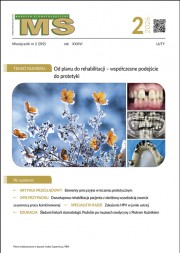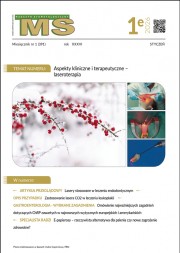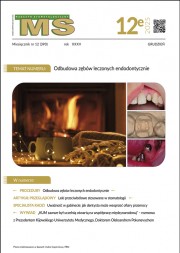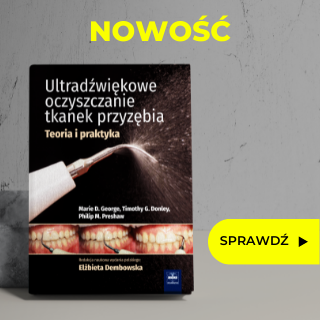
The phone is ringing
Doctor: Good morning! Dental Surgery “Dentus”. How can I help?
Patient: Good morning, Doctor. Here is your patient, Anna Nowak speaking. I would like to make an appointment for a consultation.
Doctor: Of course. How about the day after tomorrow at 3:00 p.m.?
Patient: I can come the day after tomorrow, but only after 4 p.m., because I work until 3:30.
Doctor: Then let’s meet at 7 p.m.
Patient: Perfect. This time suits me very well. So see you on Thursday.
Doctor: See you then!
The day after tomorrow
Patient: Good morning, Doctor.
Doctor: Good morning. Sit in the chair, please.
Patient: Doctor, I have recently noticed that my lower teeth become wobbly. I do not mind it, but I’m afraid that I might lose them.
Doctor: I see. I’ll look at them closely, but first let me see the entire mouth. Open your mouth wide, please.
After the test
Doctor: Well, yes. Indeed, there is tooth mobility, but there are no deeper pockets. Moreover, it affects only the mandibular incisors, those four teeth upfront.
Patient: Does it require treatment?
Doctor: Yes, of course it does. However, I have to refer you to take a pantomogram. Thanks to it, I will be able to assess the condition of the bones also in other teeth. Then maybe I will be able to decide whether to take additional pictures or not.
Patient: And now you will not do anything?
Doctor: Now I can remove tartar, because there is quite a lot of it being deposited on the teeth adjacent to the tongue. But now let me update your patient information chart because I saw you last probably two years ago.
Patient: Well, yes. I know. I should take check-ups more frequently, then there would not be such surprises.
Doctor: Have you suffered from any conditions in the last two years? I do not mean here cold, but some serious diseases.
Patient: Yes. I was sick. That’s why I didn’t take regular check-ups. Last year I went through endocarditis. It was after angina, I guess. A doctor at the hospital told me to inform medical staff about it, particularly before any treatment.
Doctor: And when was it exactly?
Patient: In November. Now there is March, so it was five months ago.
Doctor: I see. Therefore, I will not remove tartar today. During the procedure some bacteria may get into the blood stream and cause inflammation of the valves again, and we can not allow for this to happen. To prevent this type of complication will have you take an antibiotic.
Patient: So when can we meet?
Doctor: I can perform the procedure even tomorrow. I’m writing you a prescription for an antibiotic. It will be amoxicillin with clavulanic acid. I will also give you a referral letter for pantomogram. Please take it today or tomorrow, and bring it to the appointment. On the basis of what I see, I’ll be able to say more about your lower teeth.
Patient: Doctor, but I’m allergic to amoxicillin.
Doctor: Oh yes, I have it even marked in your chart. Therefore, I will prescribe you clindamycin. Exactly one hour before surgery you will take 600 mg, that is one tablet. If they do not have such high doses in the pharmacy, please take two tablets of 300 mg.
Patient: And what further treatment you would suggest?
Doctor: Tomorrow we’ll talk about it. I just need to know more.
Patient: Well. I will come tomorrow. At the same time as today?
Doctor: Yes. At 7:00 p.m. as well. You will be my last patient.
Patient: See you tomorrow.
Doctor: Good-bye!
VOCABULARY PRACTICE
Replace words in italics with the synonym from the table below
|
bruxism |
mobility |
extraction |
stabilize |
|
clenching |
gum disease |
stretching |
enlarged |
- Certain amount of tooth looseness is always present and it is natural, as the teeth are not fixed tight in their sockets.
- Though the most common reason for a loose tooth in adults is periodontal disease, trauma, bite injury or tumor can also cause teeth mobility.
- The tissues around a loose tooth become red, swollen and damaged.
- For most adults, oral trauma which leads to loose tooth, is usually caused by nighttime tooth grinding.
- One may even grind one’s teeth back and forth, further lengthening the ligaments.
- The first step to treat loose tooth will be to give the tooth some extra support in order to firm it up.
- Sometimes nightguard is used to prevent a patient from fully tighten his/her jaws during the night.
- If the tooth is beyond saving, a tooth removal may be necessary.
Look at these extracts from a leaflet of Amoxicillin with clavulanic acid. Put the extracts into proper categories:
|
Instructions for Use |
Undesirable Effects |
Precautions |
|
|
|
|
- I give you this drug in form of suspension, so take it orally
- Tell your doctor if you have or have ever had kidney or liver disease, allergies, asthma, hay fever, hives, or mononucleosis.
- Take with a meal or a snack.
- Stop using if there are hives, skin rash or itching.
- Take every 8 hours.
- Inform your doctor if you are pregnant, plan to become pregnant, or are breast-feeding.
- Yellowing of the skin and eyes may occur.
- Do not take a double dose to make up for a missed one.
- Take it around the same time every day.
- This drug may decrease the effectiveness of oral contraceptives so plan to use another form of birth control while taking amoxicillin and clavulanic acid.
- Call your doctor immediately if you experience wheezing or breathing difficulty.
- Shake the liquid well before each use to mix the medication evenly.













